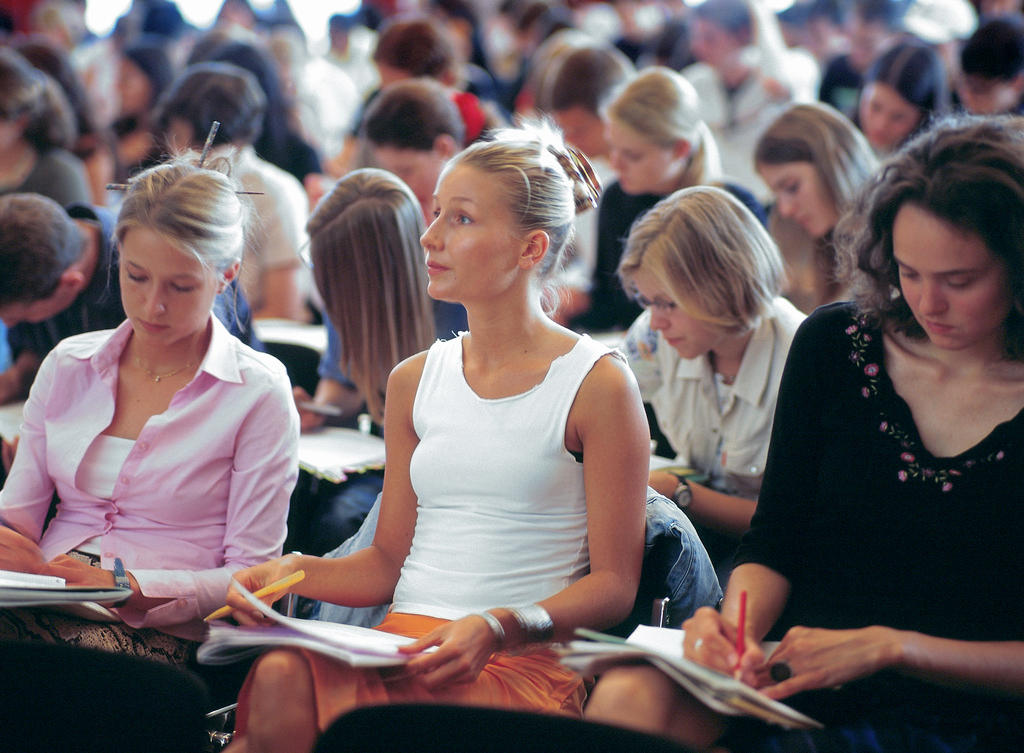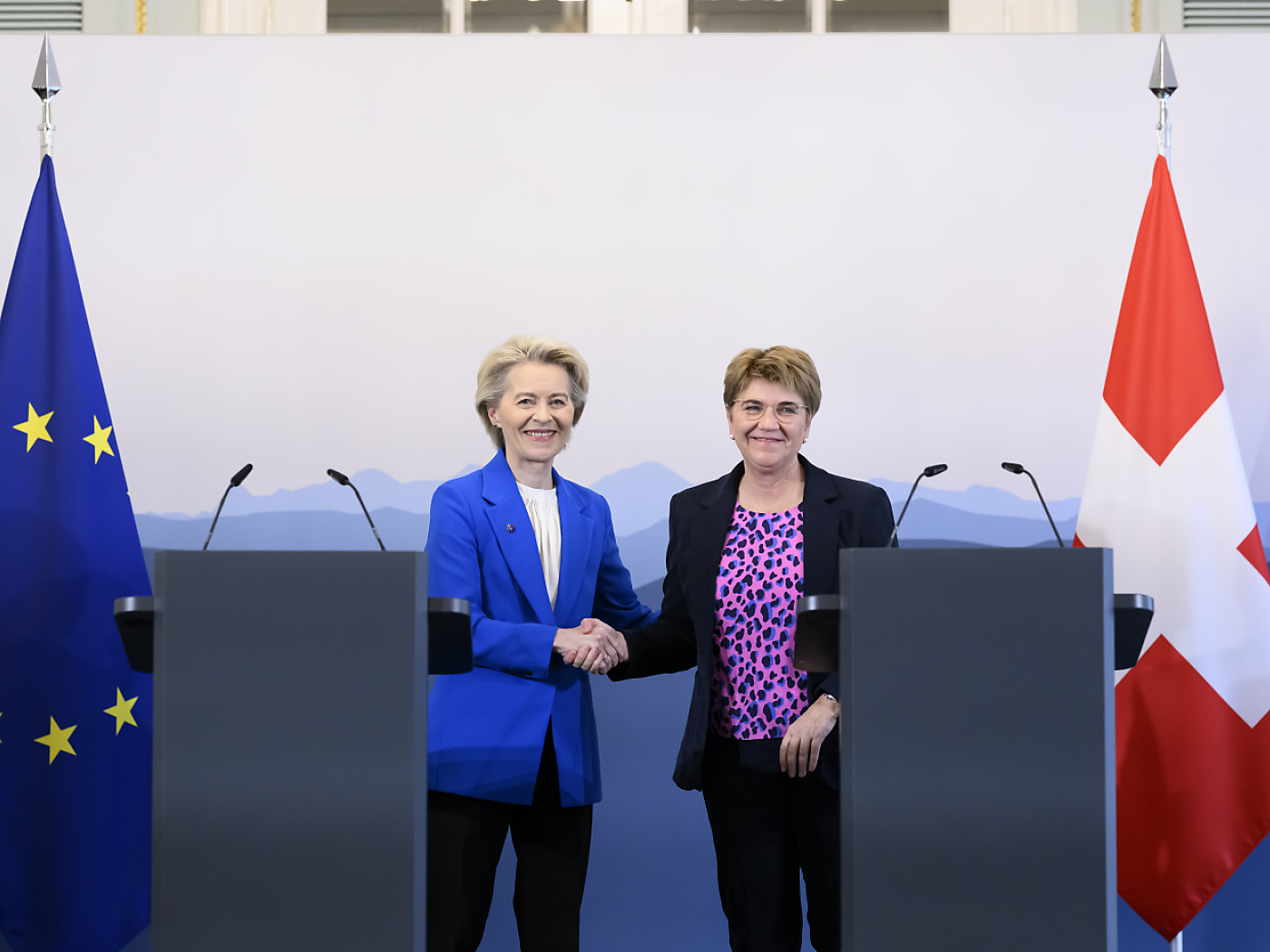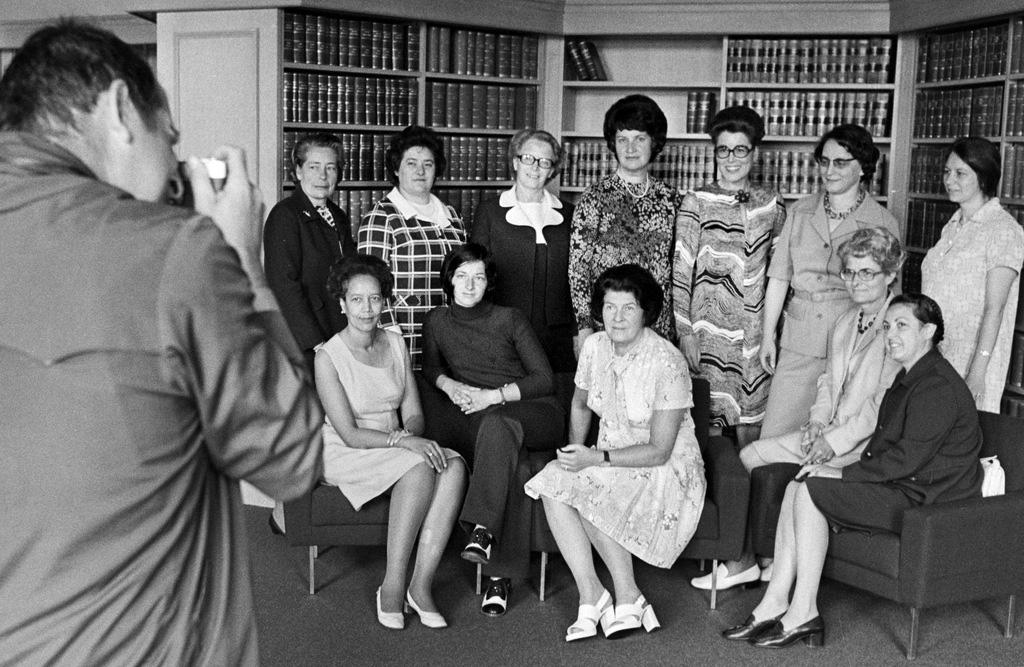Why women vote more to the left than men

A wide-ranging studyExternal link on voting behaviour by gender reported in the international press last month found that young women are more likely to vote for leftwing parties than their male counterparts.
This appears to have been the case for some time, notably in Sweden, Norway and the Netherlands. The trend was also evident in the last Swiss parliamentary elections in 2015.
This text is part of #DearDemocracy, a platform on direct democracy issues, by swissinfo.ch. Contributors, including outside authors frequently share their views. The opinions expressed here are not necessarily those of swissinfo.ch.
Claude Longchamp is a senior political analyst and chairman of the GfS Bern research and polling institute.
Why? Because women are more progressive than their male counterparts when it comes to social, environmental and gender issues, the study concludes.
But the trend is not universal, as further research in Ireland, Italy and Belgium suggests.
Switzerland has its own “gender gap” when it comes to voting behaviour.
This was evident in the 2015 House of Representatives elections when women voted for candidates from the leftwing Social Democrats and the Greens more often than men, according to the election research study, SelectsExternal link.
For the centrist Liberal Greens and the Christian Democrats, the gender ratio was about 50-50, while candidates of the rightwing Swiss People’s Party and the centre-right Radical Party were more often elected by men.
Latest research
Earlier this week, students at Zurich University presented the results of new research into voting behaviour according to gender. In her remarkable study on the causes of gender-specific electoral behaviour, Mia Eichmüller found that attitudes towards social policy, environmental policy and gender-related issues were decisive.
Voters who are in favour of extending parental leave, phasing out of nuclear energy and combating pay inequality tend to lean more to the left. This trend applies to both Swiss women as well as men.
However, the trend is observed more often among women than men, the study’s author found. The differences in voting behaviour are therefore due to the unequal spread of different opinions, Eichmüller says. Other possible explanations, such as marital status or labour market integration, do not appear relevant.
Western Europe
When analysing similar research, other theories emerge, such as a “modern gender gap”.
This is the idea that young women today are very different from previous generations. Research has revealed a growing number of leftwing female voters, particularly in Sweden, Iceland and also recently in Austria.
Social scientists, including Rosalind Sharrocks from the University of Manchester, argue that this trend is accompanied by a growing disinterest in religious issues. She concludes that social conservative values in Europe have been on the decline for the past few generations.
In contrast, social liberalism has been gaining ground. It appears to have a direct impact with women increasingly calling for the redistribution of wealth, and men insisting more often on personal responsibility in politics.
Special Swiss features
This European viewpoint is not so clear in Switzerland. This is due to the stance of the centrist Christian Democratic Party and the centre-right Radical Party in three key policy areas.
The Radicals (or Liberals) in Switzerland have closer links with the business community than their counterparts in other European countries.
As for the Christian Democrats (traditionally a party associated with the Roman Catholic Church), they are more progressive than similar parties in other European countries when it comes to social, environmental and gender issues.
Transport Minister Doris Leuthard, a member of the Christian Democratic Party in the Swiss multi-party government, may be a good example to prove this point.
She said the government showed greater determination when women, for the first time in Swiss history, had a majority in the seven-member cabinet between 2010 and 2011.
“This was crucial when we decided on giving up nuclear power,” she told the NZZ am Sonntag newspaper.
Adapted from German/urs

In compliance with the JTI standards
More: SWI swissinfo.ch certified by the Journalism Trust Initiative














You can find an overview of ongoing debates with our journalists here . Please join us!
If you want to start a conversation about a topic raised in this article or want to report factual errors, email us at english@swissinfo.ch.